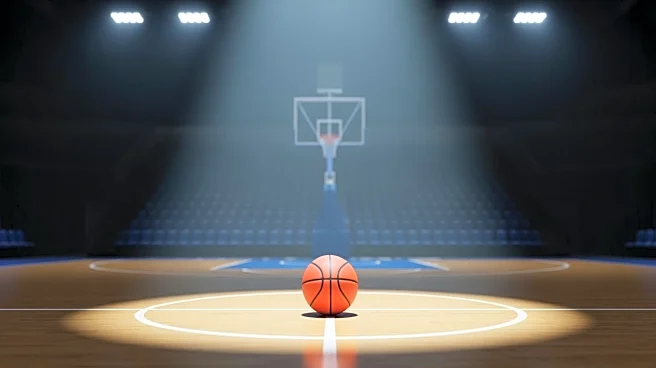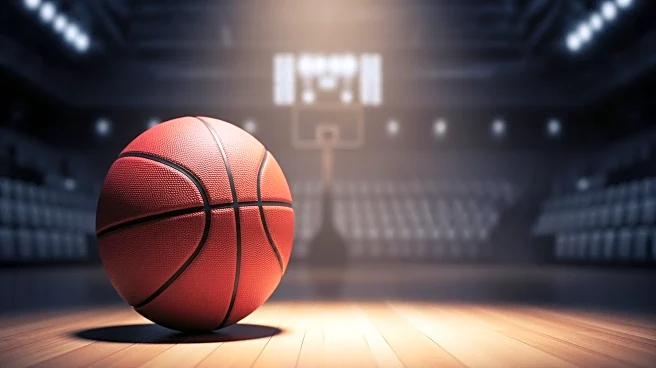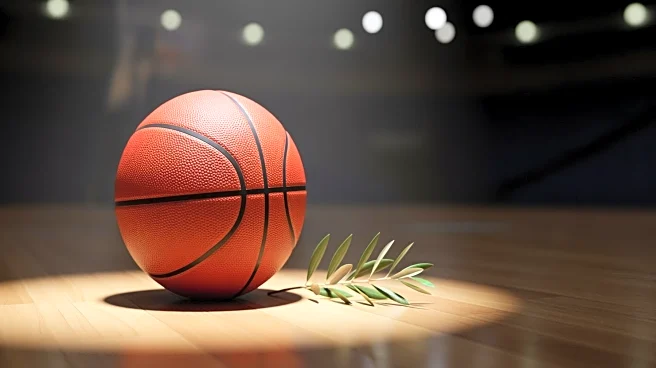What's Happening?
Luka Bogavac, a recent addition to the University of North Carolina's basketball team, is facing eligibility challenges that prevent him from participating in an upcoming exhibition game against BYU. Although
Bogavac has received NCAA clearance to play in the 2025-26 season, UNC has yet to finalize his playing status. The 22-year-old guard, who previously played professionally in Europe, joined UNC's roster after completing high school and taking college courses overseas. His situation has complicated his eligibility process, despite being enrolled at UNC since August. Coach Hubert Davis has confirmed that institutional processes are still underway to resolve these issues.
Why It's Important?
The delay in Luka Bogavac's eligibility is significant as it highlights the complexities international players face when transitioning to U.S. college sports. For UNC, resolving Bogavac's status is crucial as he is expected to be a key player, given his impressive performance in the Adriatic Basketball Association. His participation could significantly impact the team's dynamics and performance in the upcoming season. The situation also underscores the broader challenges universities face in navigating NCAA regulations and institutional requirements for international athletes.
What's Next?
UNC is actively working to complete the necessary internal processes to clear Luka Bogavac for play. While there is no set timeline, the university's athletic department is focused on resolving the issue promptly. The outcome will be closely watched by stakeholders, including fans and other international players considering U.S. college basketball. Successful resolution could set a precedent for handling similar cases in the future.
Beyond the Headlines
This situation sheds light on the broader issue of eligibility and regulatory hurdles faced by international athletes in U.S. college sports. It raises questions about the NCAA's role and the need for streamlined processes to accommodate the growing number of international players. The case could influence future policy discussions on how to better integrate international talent into college sports programs.









